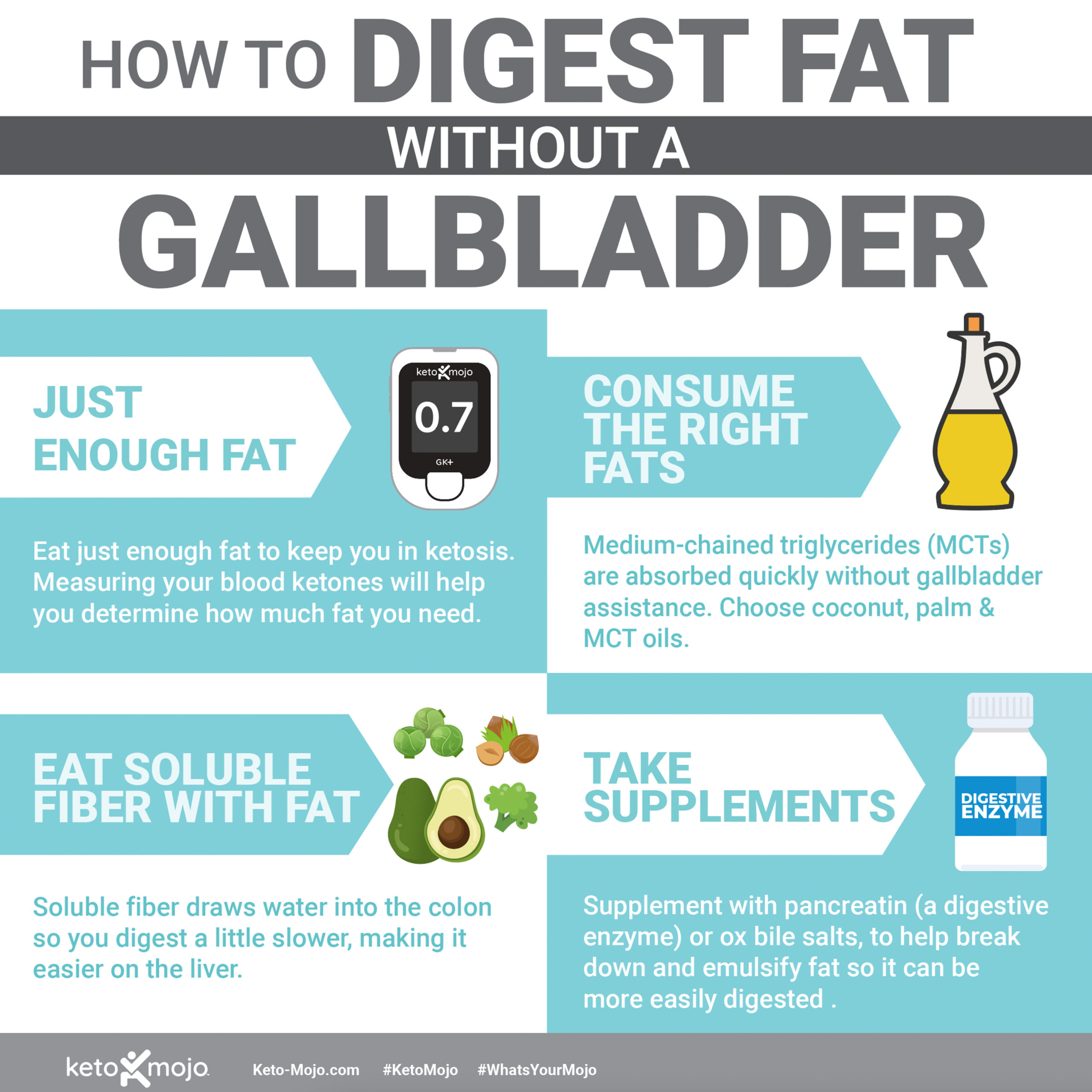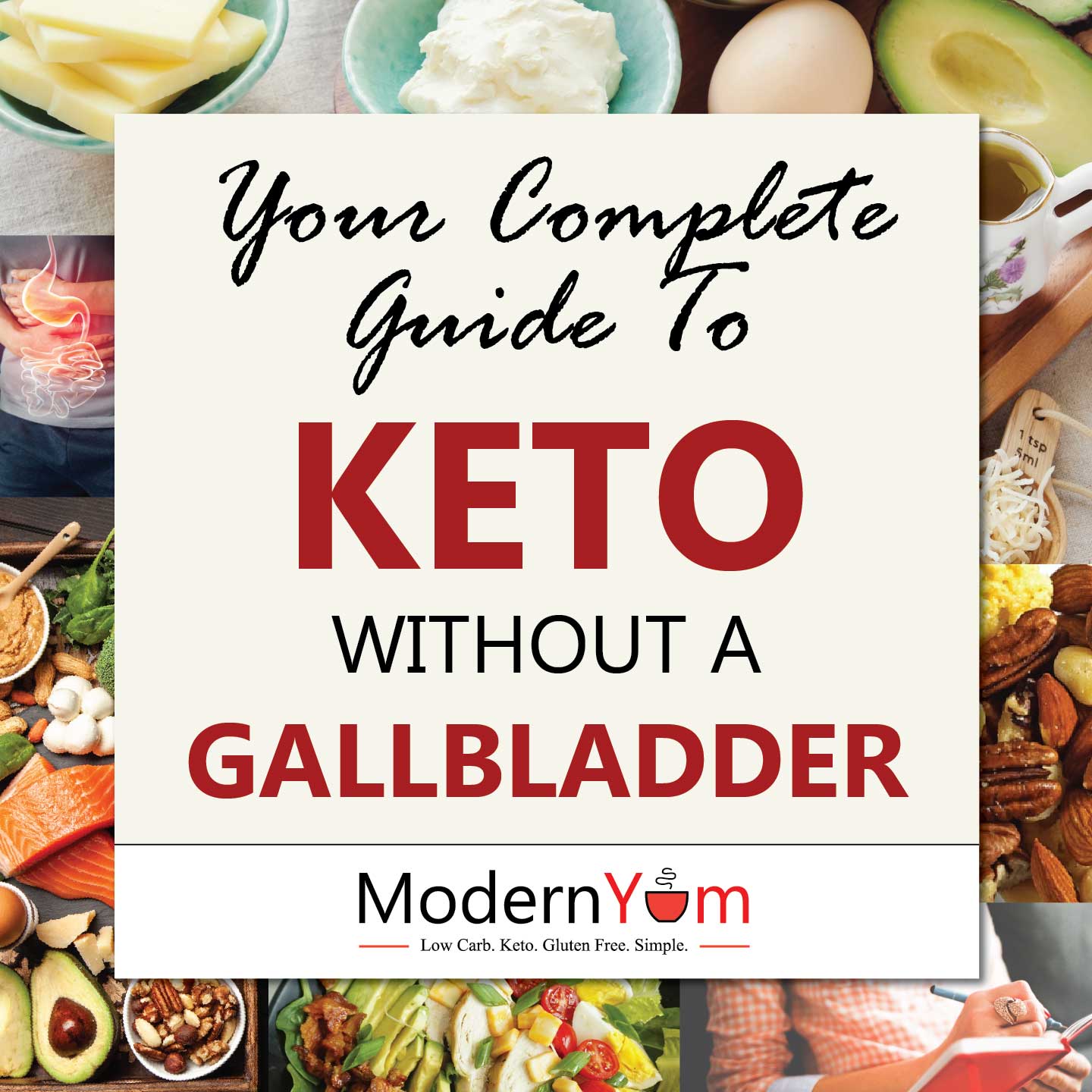Can you believe that around 600,000 gallbladder surgeries are performed annually in the United States? For those who have undergone the procedure, the idea of adhering to a high-fat keto diet might seem daunting. This concern is valid, given the gallbladder’s role in fat digestion.
Historically, the gallbladder releases bile to aid in the digestion of fats, a key component of keto diets. However, post-surgery, the body adjusts by dripping bile continuously from the liver into the digestive tract. This means with careful management like portion control and slowly increasing fat intake, individuals can still follow a keto diet successfully.

Understanding the Function of the Gallbladder
Role in Digestion
The gallbladder is a small organ located under the liver. It stores bile, a substance that helps digest fats. Bile is crucial for breaking down fats into smaller particles, making them easier to digest.
When you eat a meal, especially one rich in fat, the gallbladder releases bile into the small intestine. This process aids in the absorption of necessary nutrients. Without the gallbladder, this mechanism changes.
Bile Production
While the liver produces bile, the gallbladder stores it until it is needed. This storage function optimizes the use of bile during meals. Without the gallbladder, bile drips continuously into the digestive system from the liver.
Continuous bile flow can sometimes make it harder to digest large amounts of fat. This is why people without a gallbladder might need to adjust their diet. However, the body adapts over time.
Importance of a Healthy Gallbladder
A healthy gallbladder ensures that bile is released at just the right moment during digestion. This timed release helps to efficiently break down fats. Disruptions in this process can lead to digestive issues.
Conditions like gallstones can block bile ducts and cause pain. In such cases, surgery to remove the gallbladder may be necessary. Understanding the gallbladder’s function highlights its role in a well-functioning digestive system.
Idea Behind the Keto Diet
The keto diet emphasizes high fat, moderate protein, and very low carbs. This shifts the body’s metabolism towards burning fats for energy. The goal is to enter a state called ketosis.
Understanding Ketosis
Ketosis is a metabolic state where the body uses fat for fuel instead of carbohydrates. When carb intake is low, the liver produces ketones from fats. These ketones then become the primary energy source.
Reaching ketosis can take a few days to a week. It requires precise monitoring of carb intake. People often use test strips to check their ketone levels.
Maintaining ketosis means consistently eating very few carbs. Even small carb spikes can disrupt this state. Being disciplined is key to staying in ketosis.
Benefits of the Keto Diet
Many people find the keto diet effective for weight loss. By burning fat for energy, the body sheds excess pounds. This can also lead to reduced hunger and cravings.
Some studies suggest the diet helps with managing blood sugar levels. This is beneficial for those with type 2 diabetes. The diet’s high-fat content also supports brain health.
However, the diet does have risks and isn’t suitable for everyone. Consulting a healthcare provider before starting is essential. Understanding both pros and cons helps in making an informed choice.
Challenges and Considerations
One challenge is the “keto flu,” experienced by some during the transition to ketosis. Symptoms may include headaches, fatigue, and irritability. These usually subside within a few days.
Long-term sustainability can be difficult for some people. The strict limitations on carbs make it hard to stick with. Variety and creativity in meal planning are needed for success.
Proper hydration and mineral intake are crucial on the keto diet. The body excretes more sodium and potassium, requiring replenishment. This can be managed through dietary adjustments and supplements.
Consequences of Gallbladder Removal on Digestion
Gallbladder removal, known as cholecystectomy, impacts how your body digests fat. Without this organ, bile flows directly from the liver into the small intestine. This can change the efficiency of fat digestion.
One common outcome is difficulty digesting high-fat meals. Without the gallbladder’s bile storage, fat digestion becomes less efficient. Some people may experience bloating or diarrhea as a result.
The continuous flow of bile can cause irritation in the intestines. A diet low in fat can help mitigate these effects.
- Choose lean proteins
- Opt for low-fat dairy
- Avoid fried foods
Many people adjust to these changes over time. The body often adapts by improving overall digestive function. This adaptability helps manage the long-term effects of gallbladder removal.
Feasibility of a Keto Diet Without a Gallbladder
Undertaking a keto diet without a gallbladder is possible but requires careful management. The absence of a gallbladder means that fat digestion may not be as efficient. This could make the high-fat aspect of keto challenging.
Gradually increasing fat intake can help the body adjust. Instead of starting with high-fat meals, begin with moderate amounts. This approach allows the digestive system to adapt more easily.
Portion control is also vital. Consuming smaller, more frequent meals can aid digestion and reduce discomfort.
- Split three large meals into five smaller meals
- Incorporate healthy oils like olive and coconut oil slowly
- Avoid high-fat processed foods
Supplementing with digestive enzymes can be beneficial. These enzymes assist in breaking down fats more effectively. This supplementation can make adhering to a keto diet more manageable.
Monitoring symptoms and making adjustments is key. If certain foods cause discomfort, it may be best to limit or avoid them. Maintaining a food diary can help identify triggers more easily.
Seeking professional guidance is advisable. A nutritionist or healthcare provider can offer tailored advice to fit individual needs. This expert support can greatly enhance the success of following a keto diet post gallbladder removal.
Tips for Following a Keto Diet Without a Gallbladder
Managing a keto diet without a gallbladder can be challenging but feasible. Focus on gradually increasing fat intake. This allows your digestive system to adjust more easily.
Portion control is key to avoiding digestive discomfort. Eat smaller, more frequent meals.
- Split large meals into smaller ones
- Avoid high-fat processed foods
- Choose lean proteins and healthy fats
Consider taking digestive enzyme supplements. These can help break down fats more efficiently. This can ease symptoms like bloating and diarrhea.
Stay hydrated and ensure adequate fiber intake. Fiber helps with overall digestion. Hydration supports the removal of waste.
Track your food intake and note any symptoms. A food diary can help identify which foods cause discomfort. This makes it easier to adjust your diet accordingly.
Consult a healthcare provider for personalized advice. A nutritionist can help tailor the keto diet to your specific needs. This expert guidance can make the diet more sustainable.
Case Studies and Success Stories
Many people have successfully followed a keto diet without a gallbladder. For instance, Jane, a 45-year-old from Texas, adjusted her diet post-surgery. She gradually increased her fat intake and monitored her symptoms.
John, a 50-year-old from California, incorporated digestive enzyme supplements. These supplements helped him digest fats more effectively. He also focused on portion control to manage his meals.
The following table illustrates the key changes these individuals made:
| Name | Key Changes |
|---|---|
| Jane | Gradually increased fat intake, monitored symptoms |
| John | Used digestive enzyme supplements, focused on portion control |
Susan, from Ohio, found success by eating smaller, more frequent meals. She also chose lean proteins and healthy fats. This helped her avoid digestive discomfort and maintain ketosis.
Michael, a fitness enthusiast, kept a detailed food diary. By tracking his food intake, he quickly identified which foods were problematic. This allowed him to fine-tune his diet effectively.
These success stories show that with adjustments, a keto diet without a gallbladder is possible. Consulting with healthcare providers can further tailor dietary plans to individual needs. Adaptability and persistence are key to achieving success.
Key Takeaways
- You can do a keto diet without a gallbladder.
- Gradually increase fat intake for better digestion.
- Portion control is essential to avoid discomfort.
- Consider using digestive enzyme supplements.
- Consult healthcare providers for personalized advice.

Frequently Asked Questions
Here are some common questions about following a keto diet without a gallbladder. These answers will help you understand the process better.
1. Why is it challenging to follow a keto diet without a gallbladder?
Following a keto diet without a gallbladder can be challenging because the body struggles to digest fats efficiently. The absence of a gallbladder means bile isn’t stored and released in large amounts, making high-fat meals harder to process.
This often leads to symptoms like bloating and diarrhea if fats are consumed in large quantities. Gradually increasing fat intake and using digestive enzymes can help manage these challenges effectively.
2. What types of fats are easier to digest without a gallbladder?
Medium-chain triglycerides (MCTs), found in coconut oil and MCT oil, are generally easier to digest. These fats don’t require bile for digestion and can be directly absorbed into the bloodstream.
This makes them suitable for those on a keto diet post-gallbladder removal. Incorporating MCT oil into your meals can ease fat digestion and help maintain ketosis without discomfort.
3. Are there specific foods I should avoid on a keto diet without a gallbladder?
If you’re following a keto diet without a gallbladder, it’s best to avoid high-fat processed foods like fried items and greasy snacks. These foods can cause digestive distress due to their high fat content.
Instead, focus on whole, unprocessed foods such as lean meats, vegetables, nuts, and seeds. Gradually increase healthy fats from sources like avocados, olive oil, and coconut oil.
4. How long does it take for my body to adjust after removing my gallbladder?
The adjustment period varies per individual but typically takes around several weeks to months. During this time, your body learns how to manage the continuous flow of bile from the liver instead of stored release from the gallbladder.
Pacing yourself by slowly introducing higher fat content into your meals will enable smoother digestion during this transition period. Monitoring symptoms and consulting with healthcare providers can also accelerate this adjustment phase.
5. Can I achieve ketosis more easily with any supplements?
Certain supplements like digestive enzymes containing lipase or ox bile can aid in breaking down dietary fats more efficiently. This helps reduce digestive issues such as bloating or diarrhea when you consume higher amounts of fat required for ketosis.
MCT oil is another valuable supplement as it offers easily absorbed healthy fats that do not heavily rely on bile for digestion. Incorporating both these supplements into your regimen may enhance your ability to maintain effective ketosis without complications.

Conclusion
Following a keto diet without a gallbladder is indeed possible, but it requires diligence and adjustments. By gradually increasing fat intake and focusing on portion control, you can minimize digestive discomfort. Supplements like digestive enzymes can also aid in this transition.
Consulting with healthcare professionals for personalized guidance ensures a smoother process. Success stories demonstrate that with the right approach, it’s achievable. Your body’s adaptability, combined with strategic dietary choices, can lead to a successful keto journey even without a gallbladder.
